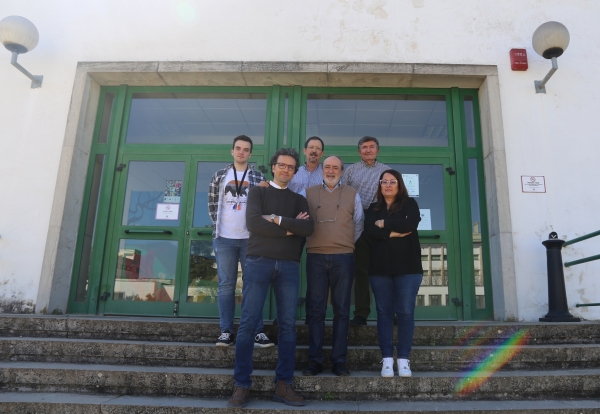Iron is one of the most abundant elements in the Earth's crust, and a key element for crop nutrition. However, incalcareous soils (very abundant in Spain) it is a challenge for plants to obtain iron from the soil, due to its poor solubility and availability. This is when iron deficiencies appear and plants activate different responses, mainly in their roots, to obtain this nutrient.
The research staff at the María de Maeztu Unit of Excellence – Department of Agronomy, University of Córdoba (DAUCO) – working in the Plant Physiology group have been studying these plant responses for decades and looking for strategies that make iron more available to plants, avert iron chlorosis, and increase crop growth.
In the current context of climate change and the search for environmental conservation, it is essential that these solutions be sustainable, avoiding the abuse of chemically synthesized products that are harmful to the environment.
Along this line falls the latest work led by this group in collaboration with the departments of Agricultural Chemistry, Edaphology and Microbiology; Genetics; and Botany, Ecology and Plant Physiology, as well as with the Department of Genetic Improvement of the Institute of Sustainable Agriculture (IAS – CSIC), in which the potential of a microorganism has been proven (the FO12 strain of the Fusarium oxysporumfungus) as a biofertilizer and iron biostimulant.
Although the Fusarium oxysporum fungus is very harmful to many crops, "the FO12 strain is non-pathogenic (does not cause disease) and has proven to be a biocontrol agent against Verticillium dahliae," explains DAUCO professor Javier Romera. The disease-controlling power of this strain was already known thanks to previous work by the Agroforestry Pathology group, and is likely due to the fact that this strain is capable of activating Induced Systemic Resistance (ISR), a kind of immune system that plants have to defend themselves.
The regulation of this defensive response relies on substances such as ethylene and nitric oxide, which are also involved in activating responses to iron deficiency. "As this fungus already induced defensive responses, we thought it could also induce ones to iron deficiency, and that was the idea behind the study, to prove that it also induces them," says researcher Carlos Lucena.
This study, therefore, proves that the FO12 strain improves iron responses to iron deficiency in cucumber plants in calcareous soils. 24 hours after the inoculation of the roots of cucumber plants with this microorganism, results are already seen: genes related to the response to iron deficiency are activated and, after several days of cultivation, the plant's growth increases.
The study was carried out with cucumber plants grown in nutrient solution, "a more artificial system", and also in pots with calcareous soils, under greenhouse conditions "because the idea is that these microorganisms can be applied as biofertilizers favouring the acquisition of iron in those calcareous soils, where there are more problems", Romera explains. The fungus stimulated iron acquisition and plant growth with both cultivation methods.
The use of this type of microorganisms as a biofertilizer, in addition to promoting environmental sustainability, as these are natural elements that avert the use of chemically synthesized fertilizers, helps to regulate communities of soil microorganisms, as their mere presence makes them occupy niches that other pathogenic fungi that produce diseases would otherwise.
"The ultimate goal is to develop a biostimulant that both protects crops from attack by possible pathogens, as well as to improve the ferric nutrition of plants under adverse conditions", says researcher Miguel Ángel Aparicio. The way to make its use a reality in the field is to analyse its effect on other nutrients, such as phosphorus; optimize the treatment doses; and verify the most suitable conditions for its application in the field.
*This work is part of the Doctoral Thesis of researcher Miguel Ángel Aparicio, carried out thanks to a grant from the University of Córdoba Research Plan.
Aparicio, M.A., Lucena, C., García, M.J. et al. The non-pathogenic strain of Fusarium oxysporum FO12 induces Fe deficiency responses in cucumber (Cucumis sativus L.) plants. Planta 257, 50 (2023). https://doi.org/10.1007/s00425-023-04079-2


